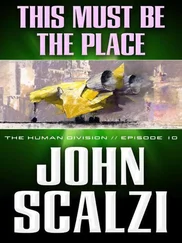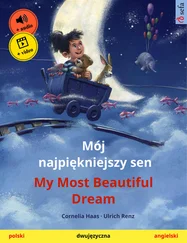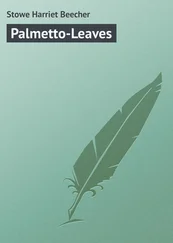“The Vermont-Canadian border is ninety miles,” my brother said. “Lots of opportunity there.”
I hung up.
This was the summer that our neighbors who didn’t own a television set would walk up the road on some evenings to watch the Ken Burns documentary The Civil War. They would arrive with strawberries or rhubarb pie or sweet breads. We were all mesmerized by the episodes. They were titled “The Cause,” “A Very Bloody Affair,” “Forever Free,” “Simply Murder,” “The Universe of Battle,” “Valley of the Shadow of Death,” “Most Hallowed Ground,” “War Is All Hell,” and “The Better Angels of Our Nature.” The heat was relentless, but we had fans set up to create a cross-breeze and made iced tea.
The documentary’s soundtrack was all haunting fiddle and accordion music and ghostly voice-overs. Many letters from soldiers were read; the epistolary life during the Civil War, in sheer numbers of letters, endless ghastly anecdote, and tone of bewildered homesickness, was immeasurably heart-wrenching. Each line of printing or cursive shown in close-up on the screen, each of the hundreds of black-and-white photographs, contained history. Many of the photographs depicted battlefields, often with numerous bodies strewn in twisted, agonized configurations that made for a kind of hieroglyphics of corpses, a forensic alphabet, especially when photographed from a hill or rise. Some of the individual dead looked as though they were merely sleeping. The voice-overs, the actual words of the soldiers, both Union and Confederate, got to me as easily as the photographs. The voices: each episode felt like a séance organized and directed by Ken Burns, and during my hours of watching, a powerful melancholy presided. Those photographs, though. The photographs were saturated, of course, with the sadness of a war that divided and ultimately defined us as a nation, but within that context also intensified our understanding of the uncanny power of photographs to haunt us.
Then, after a couple of hours, in the somewhat cooling air, the neighbors would set out up the road for home, a quarter of a mile away. It was as if we had all entered the mid-nineteenth century, the only ambient light being the moon and stars and the oil lanterns they held to see by. One morning at the post office, my neighbor Mark said, “Things in my house are getting strange. Allison and I stare out at the back field and imagine a battle going on.”
The well took three full days to complete, and was, up to that time, the third-deepest private well in the state. I was writing those articles about having a well dug as fast as I could. I’m smiling as I write this now, but talk about pouring salt on the wound: When the Benidinis got to 620 feet, at about four P.M. on the third afternoon, I was looking at them through the lace curtains of my living room. It was like having my view filtered through a past century, as the lace was antique. I watched the oldest Benidini brother, Toby, strip off his T-shirt, walk to the auxiliary tank of water (used to reduce friction), pick up an plastic container, fill it from the tank, and empty it over his head. He then took out a bottle of shampoo — the kind you get in hotel rooms — and proceeded to shampoo his hair, then rinse it with what water was left in the container. Taking a comb from his back pocket, he styled his hair into a duck’s-ass. I must’ve been at wits’ end, because his casual use of water set me off, to the point where I was going to comment on it through the window screen. I have no earthly notion what I would have said, but I never got around to it, because the telephone rang.
“I really need to get into Canada,” my brother said. “I saw a suspicious car in the motel parking lot. A man got out and walked to a diner. I went over for a look at his car. There were binoculars on the front seat. Believe me, he didn’t look like any bird watcher.”
“You’re having paranoid delusions.”
“I understand you haven’t heard from me for a couple of years, but you’re hearing from me a lot already this summer. See? People can change.”
“You’re putting me in a very difficult position, here.”
“The problem with you is, you can’t grant your brother a simple favor. Know what I’m doing right now? I’m closing my eyes and seeing us crossing the Canadian border.”
“You’ve got movies in your head.”
“How about this for an idea? A picnic a hundred yards before Canada. Little Emma points and says, ‘Dada, what’s that?’ And you say, ‘Honey, that’s the Canadian border. After our picnic is over, your uncle Mike is going to walk right across it. Won’t that be fun to watch?’ Let me add something to the bargain. I give you full permission — and I’d sign a piece of paper to this effect— full permission to use this incident in a novel.”
“So you’re providing me with ideas now.”
“Somebody has to.”
“I try to do that for myself.”
“Good luck. I still hear those well diggers in the background. Which reminds me, know what’s weird? Whenever I try talking sense to you, I get parched. This amazing thirst. When I hang up I’ll probably drink ten glasses of water in a row. Have you thought about my offer?”
“Stop calling collect, okay?” I hung up.
Then the Benidini Brothers started to dismantle their giant Erector set. Just like that, it was over. I went out onto the side porch and said, “What’s going on now?” Toby said, “We’ve stopped at five gallons per minute. But it’ll improve as things open up even more where we’ve cracked rock deep down.” It took the next two hours for them to dismantle the rig, load it on the flatbed. The last thing Toby said was “We’ll accept payment in three installments. You didn’t ask for that arrangement, but this hole went very deep. You know, we’d rather have something in pocket right up front.”
I wrote a check for the whole amount. The next morning I went into town to get new typewriter ribbons. Two of the articles on well drilling were due in ten days.
Conversation with my brother, June 27:
“It’s four A.M.” I said.
“Oh, sorry. It’s only two where I’m calling from.”
“That narrows your location down to the western United States.”
“You don’t sleep much anyway,” my brother said, “if memory serves.”
“I take it — in the legal sense — someone is looking for you?”
“Nice to be wanted, isn’t it?”
“That would make me laugh if it was funny.”
“So here’s my offer. I come and spend some quality time with my new niece, whom I haven’t yet seen. Then one night you drive me up to Canada. I’ll fall right out of my bind.”
“Well, have you given any thought to the fact that I’d be aiding and abetting a criminal? You want my daughter to have a father in jail? That’ll make me an absent father. I’m not in that family tradition. What is your legal bind, anyway?”
“The less you know the better. I’ll pay for a full tank of gas, don’t worry about that. How long do you need to consider my offer?”
“Ten years.”
I hung up, or he did.
In the middle of July I went to an owl conference held in Wolcott, Vermont. Owl specialists from all over the world attended. In the evenings, and through the night and early-morning hours, some participants went out looking for owls in nearby Great Bear Swamp. All the heavy-duty flashlights had been bought up from local hardware stores. One ornithologist from Japan bought a miner’s helmet, and its beam funneled yellow-white light up into the trees.
On the second afternoon of the conference, a Frenchwoman, Dr. Joubert, gave a lecture with a title she said had been inspired by François Villon, “In the Darkness Where the Dreaming Begins,” in which she described what was for her the dreamlike quality of seeing owls on a moonlit night. Her paper also contained esoteric references, but it distinguished itself by its ethereal tone, especially since the majority of lectures were incredibly dull. Still, even in the paper titled “Parasites in the Great Horned Owl” there was something interesting to learn. Besides, it wasn’t every day you got to be with people obsessed by owls.
Читать дальше












